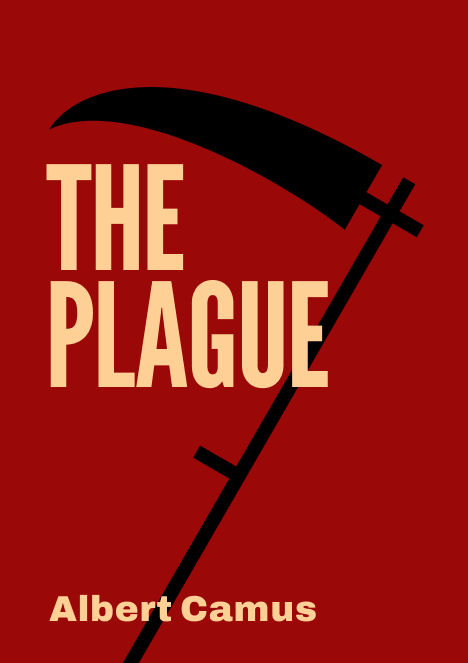The book is set sometime during the 1940s in the city of Oran, in French Algeria. The town is described as a very ordinary and ugly commercial city without trees, gardens, or even pigeons. It has no distinguishing characteristics, and it is the last place we would expect the extraordinary events of the book to take place.
Oran also has a somewhat harsh climate: springtime passes by almost unnoticeably, and the summers are scorching. The citizens largely focus on work and business with the sole aim of making money; in the evenings and at weekends, they enjoy simple pleasures, such as swimming in the sea, going to the cinema, or drinking in bars. When people fall ill in Oran, they easily become depressed, as the city is so unexciting and their daily routine is so dreary and boring.
The story begins when one of the main characters, Dr Bernard Rieux, finds a dead rat outside the front door of his apartment. Mr Michel, the doorman of the building, complains, thinking that it must be some kind of practical joke. It is the 16th of April, and Dr Rieux has to accompany his wife to the train station, because she is very ill, and must travel to a nearby resort for treatment. The couple say goodbye sadly at the station, and Rieux promises her that things will be better when she returns. Although she is smiling at him, a tear escapes from her eye before the train leaves.
In the meantime, the rat issue becomes increasingly worrying, and within a short time, thousands of rats begin to surface from the cellars and sewers, dying in the streets, in front of people’s doors, and outside cafés. Local newspapers begin covering the events, and asking whether the town council is doing enough to curb this disgusting problem, which is now completely out of control. What’s more, no one is able to identify the cause of the issue. On the 25th of April, the local radio station Infodoc announces that over 6,200 dead rats were collected in a single day, and this figure goes up to 8,000 the next day. Just as people start to become seriously worried, the number of dead rats drops dramatically; everyone relaxes and begins to think that it had just been a very strange, one-off incident.
